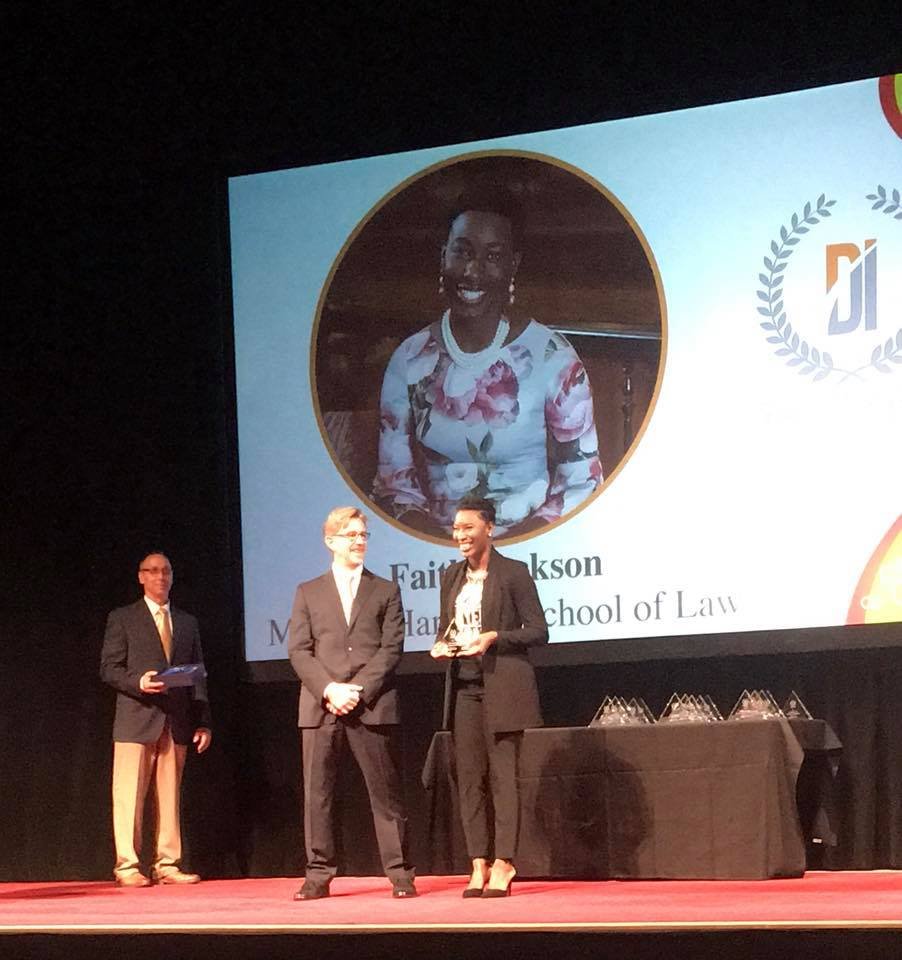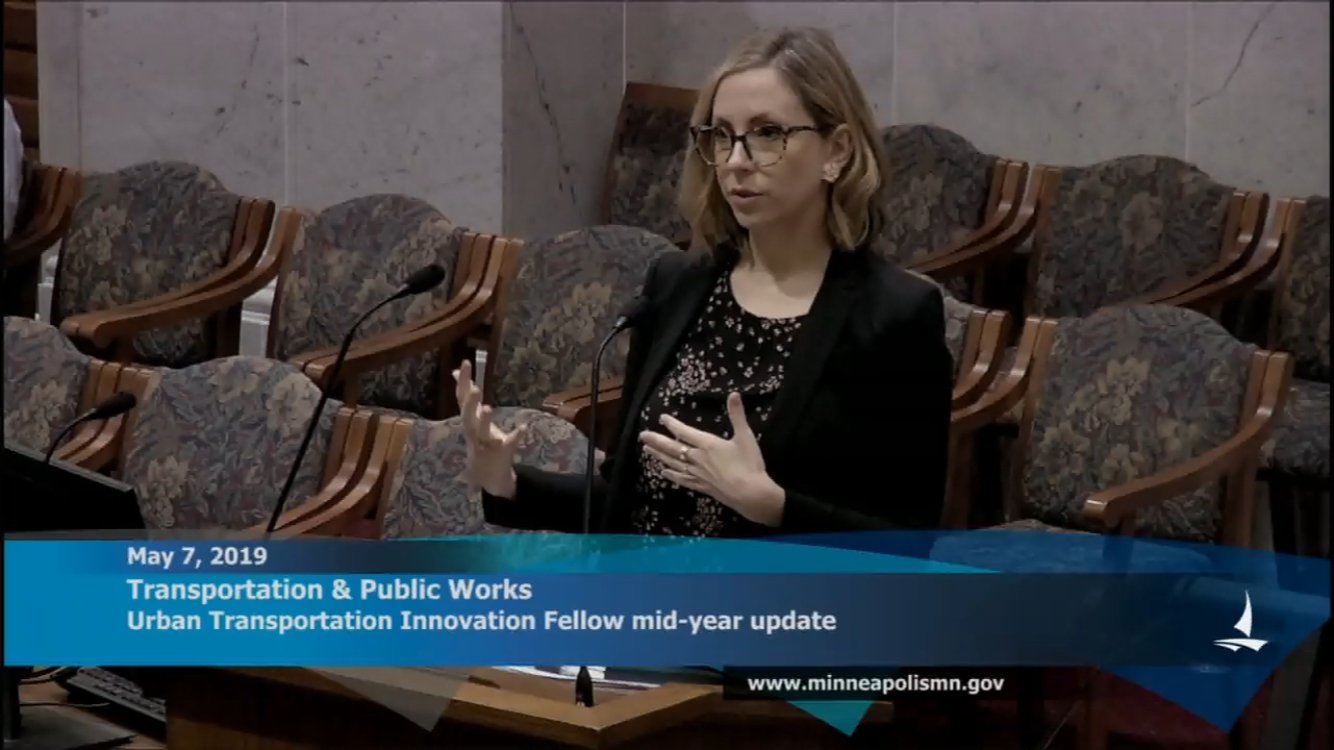Mike Walsh Perseveres for Adaptive Housing Solutions
Toney Thompson Finds Solutions by Prioritizing Residents
Antonio Espinosa believes art transforms people and systems
The stories the bureaucracy can’t see: Faith Kidder speaks on the importance of contextual care
By Hannah Sweet
For Ashley Schmidt, accessibility in local government is personal
Chaquinta Fisher sees big opportunities in local government tech
Jaqui Guzmán stands with community against hate and bigotry
Herocrats Spotlight: Faith Jackson is Fearlessly Strategic about Racial Equity
When Faith Jackson began working for the City of Bloomington in Minnesota three years ago, she was thrilled to break new ground as the City’s first racial equity coordinator. Faith previously worked in racial equity and inclusion for the Cities of Minneapolis and Saint Paul, but her dedication to social justice started long before then:
“I am a very proud daughter of Mississippi, and I grew up learning at the feet of elders. I always say that. My parents advocated for themselves and others while I was in the womb, so I feel like I was born into it.”
Faith grew up in a racially hostile environment in Mississippi. When she was young, her family moved into a white neighborhood for her father to meet the residency requirement for a county job. They were the only Black family in their neighborhood, and she and her brother were the only Black students at their elementary school. There, Faith’s family experienced racism and discrimination:
“No one wanted us to stay. We had the Klan members burn crosses in our yard. We would make copies of all our homework assignments so that we could track at the end of the year what our grades should actually be. And all we needed to do was cross over the train tracks, and I would have had an entirely different experience.”
Faith interning at the City of Minneapolis Department of Civil Rights. Pictured with Velma Korbel, the former Civil Rights Director.
Being required to navigate racism at a young age shaped Faith’s perspective of her world. Growing up, she knew she wanted to help improve other people’s lives. This motivated her to work in government. Faith attended Tougaloo College in Jackson, Mississippi, “the cradle of the civil rights movement.” After receiving her bachelor’s degree, she moved to Minnesota to attend Hamline University School of Law.
Throughout law school, she interned at the City of Minneapolis Civil Rights Department and discovered a passion for policy work. After graduating, Faith was offered a full-time job in the Civil Rights Department. Within a week, she went from an intern to the newest member of their leadership team.
Faith accepting an award from Minnesota Lawyer
Faith worked for the City of Minneapolis for several years before taking her experience to St. Paul and, ultimately, Bloomington. In the fall of 2019, she was hired to build the blueprint for embedding equity and inclusion throughout the organization’s fabric.
Very quickly, Faith faced unprecedented challenges that required courage. After George Floyd’s murder in neighboring Minneapolis, Faith was put in a position where she had to be a mediator between the City of Bloomington and the community. Growing up as an activist, she felt conflicted being on the other side of the table, and she thought a lot about the City’s strategies to progress racial equity and what they wanted to accomplish.
“I made it through those moments by remembering why I chose to work in government in the first place. I reminded myself of the need and ability to influence change from within the system. I promised them that I would use my position in local government to hold the City accountable to its commitment to racial equity. I asked them to hold me accountable to that promise.”
It takes courage to disrupt systems, and Faith is leading racial equity work in government fearlessly. It can be scary to make big decisions in unprecedented times without best practices or a blueprint to rely on; to help, she leans on her professional and academic achievements, as well as her personal experiences of growing up as a Black woman and a descendant of the civil rights movement. Faith’s bravery, connection to the community, and strong sense of self help her know the right thing to do in each new situation.
Faith participating in an event with the City of Minneapolis Department of Civil Rights
Herocrats Spotlight: Mobility Manager Danielle Elkins
Danielle Elkins is the Mobility Manager for the City of Minneapolis, where she reviews mobility and transit technologies that are hitting the market, and determines if they are a good fit for the City’s mission. In her work today, Danielle juggles the dissonance of ever-changing technologies with government policy change.
“We have a public works department that was created 150 years ago. How do you adapt something that is 150 years old to things that are changing on a six month, one year cycle now?”
“After ridehailing launched in 2010, companies started coming to the US Conference of Mayors and National League of Cities looking to preempt cities out of regulating them. In these rooms I saw how these tech companies were treating government officials, and I saw a lack of understanding of government and how it works. I was like, ‘something is wrong here’.”
“People hate change, and everything I've ever done in mobility policy is preparing for and reacting to changes, whether it's working on projects like a high speed rail program in California, or developing new mobility programs in Minneapolis. You're also fighting an internal perception that you are changing people's jobs, and a lot of people get uncomfortable. Meanwhile, the public sees the changing landscape that the market is pushing for, and can get really angry about who they think is bringing about that change, when most of the time the government is just responding to market forces.”
“So much of this anger is rooted in fear because this work is so complicated, and it is changing so quickly. Our ability to articulate these changes to the general public has been a struggle particularly because our strength in government is not storytelling or communications. Our job now is to try to find ways to explain these changes to the public. This is a modern challenge across government, that as things become more and more complex, our current systems are not set up to handle it.”
“We need to be okay with admitting that change is going to keep happening and that we will never know 100% of what is coming. If we know what our goals and our outcomes are going to be, and if we stay aligned on anything that comes our way, we can handle it.”















